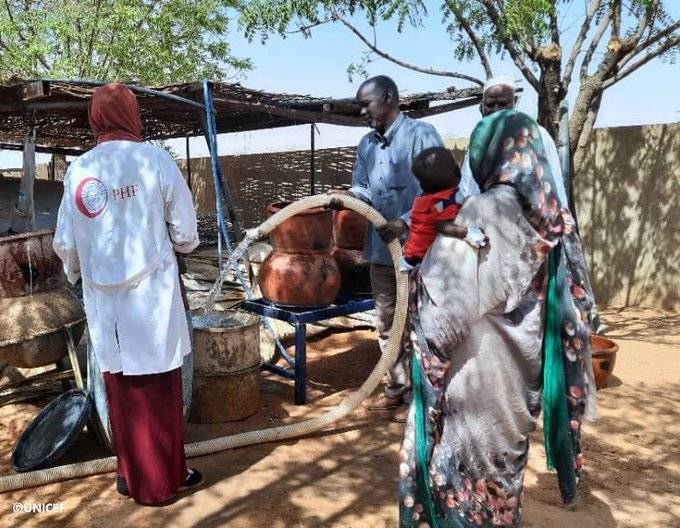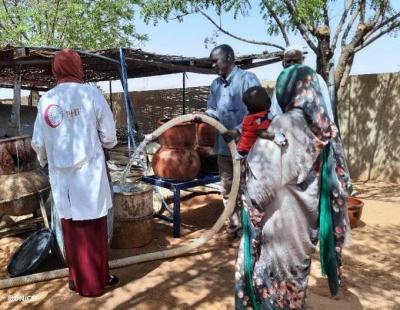Clashes between the Sudanese army and the Rapid Support Forces continue on Thursday, disrupting the relative calm in the capital, Khartoum, raising concerns over the potential collapse of a week-long ceasefire mediated by international parties amidst growing worries about a humanitarian crisis. The Sudanese Doctors' Syndicate announced that the number of civilian casualties has risen to 865.
The ceasefire, monitored by Saudi Arabia and the United States as well as the warring parties, was reached after five weeks of fighting in Khartoum and outbreaks of violence in other parts of Sudan, including the Darfur region in the west. The fighting, primarily between the Sudanese army and the semi-military Rapid Support Forces, has exacerbated the humanitarian crisis and forced more than 1.3 million people to flee their homes, threatening to destabilize an already fragile region.
In just one month, over 1.1 million people have been displaced by the violence in Sudan, with individuals seeking safety both within Sudan and in neighboring countries. The army, led by General Abdel Fattah al-Burhan, relies on air power, while the Rapid Support Forces, led by Mohamed Hamdan Dagalo (known as Hemetti), have spread throughout the streets of Khartoum.
It remains unclear how much either side has advanced in recent weeks. Residents reported clashes on Wednesday in Khartoum and other cities. The United Nations Office for the Coordination of Humanitarian Affairs indicated that organizations are prepared to deliver aid to over 4 million people, but bureaucratic hurdles and security issues hinder distribution.
The U.S. State Department confirmed that the ceasefire monitoring mechanism in Sudan detected potential violations on May 24, using drones, artillery, and warplanes. A relief official stated that out of 168 aid trucks ready for delivery, only a few are moving from Port Sudan to Qadarif, Kassala, and Al Jazirah states.
The U.N. High Commissioner for Refugees coordinator, Toby Harvard, noted that an armed group has besieged the city of Zalingei, the capital of Central Darfur State, calling on the authorities to regain control of the city. The International Committee of the Red Cross announced that donated anesthesia, antibiotics, and other medical supplies are now being distributed to seven hospitals in Khartoum.
Alfonso Verdu Perez, head of the Red Cross mission in Sudan, stated that "currently only 20 percent of health facilities in Khartoum are operational, marking a true collapse of a system when it is most needed." He added, "Hospitals are in urgent need of water, electricity, and a safe environment for their patients and staff. We urge both parties to respect the work of medical personnel. People's lives depend on them."
Many residents struggle to survive as they face prolonged water and electricity outages, a breakdown of health services, chaos, and looting. Over a million people have been displaced within Sudan, while 319,000 have fled to neighboring countries, some of which are also grappling with poverty and a history of similar internal conflicts.




